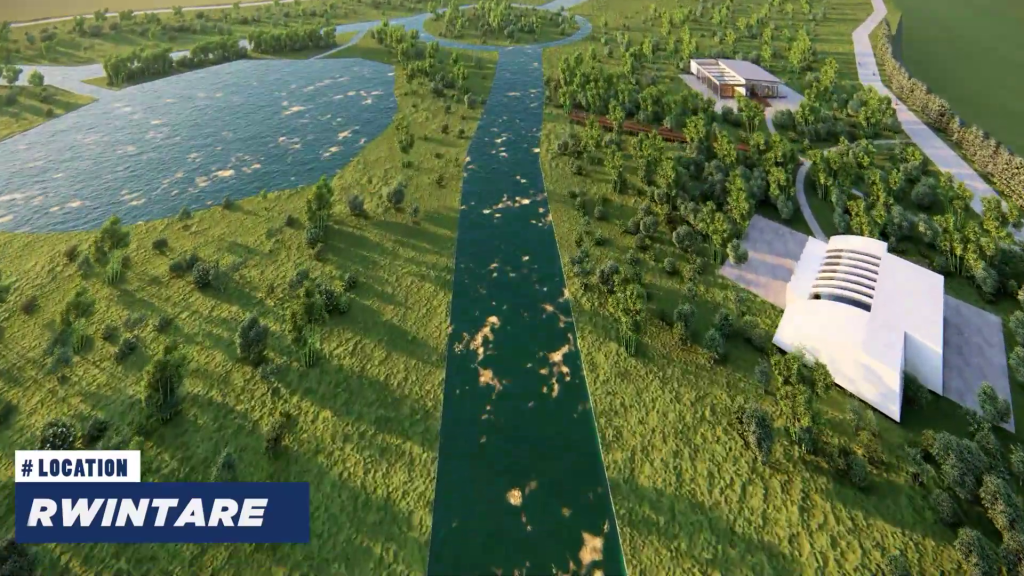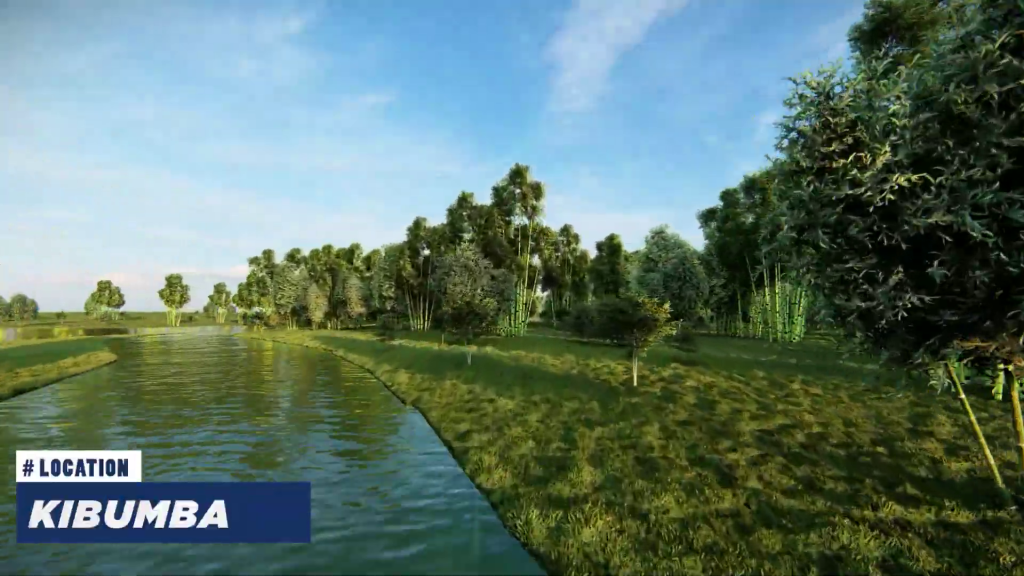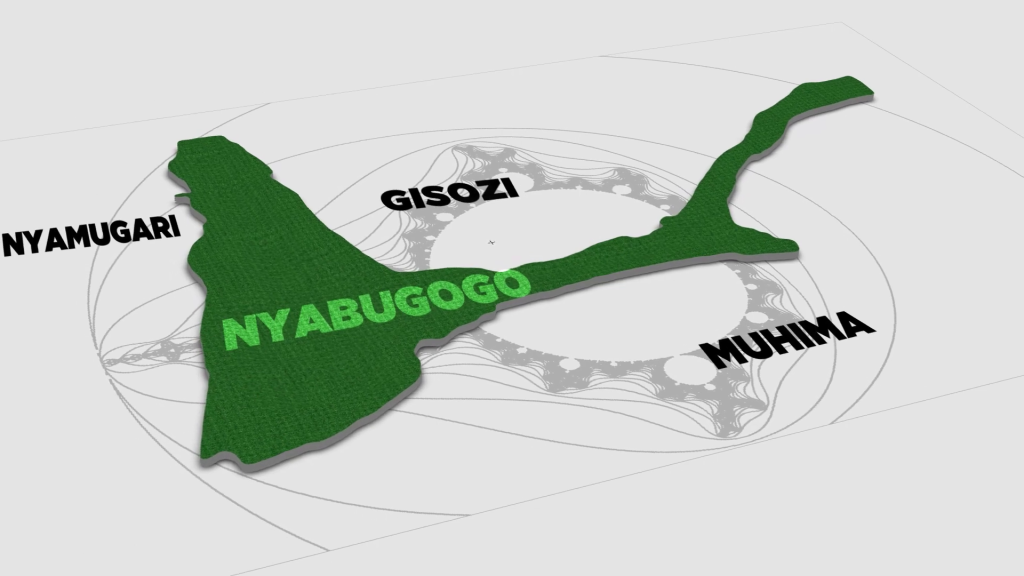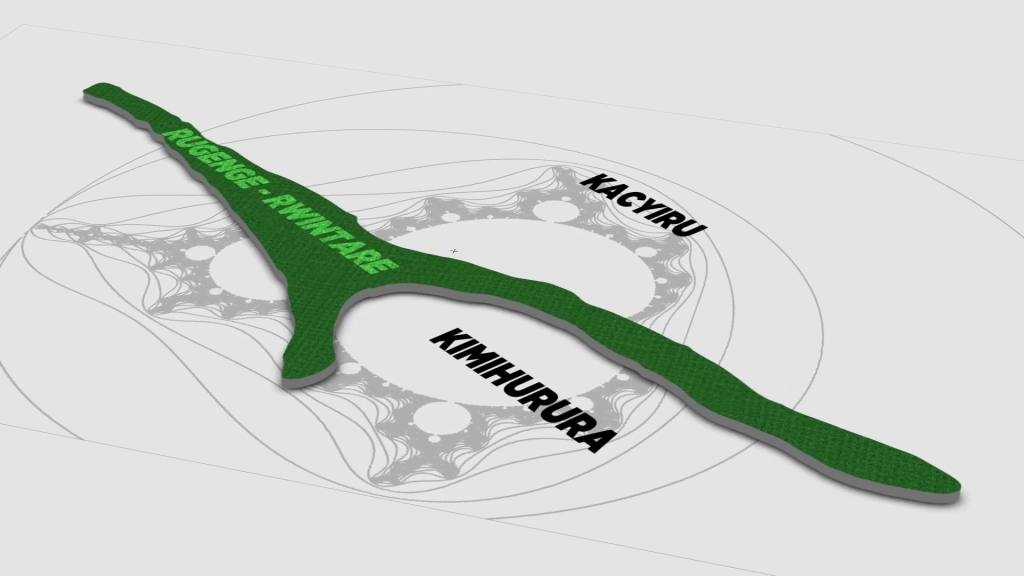Building on the acclaimed success of the Nyandungu Eco-Park, Kigali is now replicating its green transformation model across five more critical wetlands. This ambitious project promises to weave a network of nature-based havens that will fundamentally reshape urban life and bolster climate resilience by the end of 2025. This undertaking, well over halfway complete, underscores Rwanda’s proactive commitment to sustainable urban development.
The colossal undertaking, with a first phase mobilizing $36 million out of an overall $82 million investment, aims to rehabilitate Gikondo (162 ha), Rwampara (65 ha), Nyabugogo (131 ha), Kibumba (68 ha), and Rugenge-Rwintare (65 ha) wetlands. According to the Rwanda Environment Management Authority (REMA), construction, which commenced in March 2024, is progressing rapidly.
Four of the five sites—Kibumba, Nyabugogo, Rugenge-Rwintare, and Gikondo are at 56 percent completion. Rwampara is at 20 percent due to a later start at work. These revitalized areas will feature 58.5 kilometers of integrated pedestrian and cycling pathways, sports grounds, and even new lakes, transforming them into vibrant public spaces.


“We are not just restoring ecosystems; we are building a healthier, more resilient city for our citizens,” stated Martine Uwera, Programme Manager of Environmental Mainstreaming and Biodiversity Management at REMA. “These wetlands, once degraded, are becoming critical infrastructure for flood mitigation, water purification, and biodiversity restoration. They will directly and indirectly benefit over 220,500 people in flood-prone areas.”
The initiative leverages the proven success of the Nyandungu Eco-Park, which opened in July 2022 and quickly became a popular destination, demonstrating the public’s significant appetite for accessible green spaces.
“Nyandungu showed us the immense potential of what’s possible when we invest in nature-based solutions within our urban fabric,” commented a City of Kigali urban planner. “Now, with these new developments, we are expanding that vision across the entire city, making nature accessible to everyone and seamlessly integrating it into our urban future.”
Local residents are already witnessing the tangible changes. “Before, Gikondo was an eyesore, a place often associated with industrial pollution,” said Agnes Mukantwari, a long-time resident of Kicukiro District. “Now, seeing the construction, the trees being planted, and imagining a beautiful park here, it gives us hope for a cleaner environment, less flooding, and a lovely space for our families to enjoy.”
The project’s vision extends beyond mere recreation. Nyabugogo wetland, for instance, will include facilities to curb floods affecting crucial infrastructure and the creation of a large lake to enhance the city’s landscape. Kibumba wetland is being designed as a dedicated fishing education and recreation area, while Rwampara will incorporate Rwandan cultural activities, blending conservation with heritage

.
Funded by the World Bank (through the Rwanda Urban Development Project II), the Global Environment Facility (GEF), the Nordic Development Fund, and the Government of Rwanda, this multi-faceted project exemplifies Kigali’s proactive approach to urban environmental management.
As the December 2025 completion date approaches, Kigali is setting a powerful example for other African cities on how nature-based solutions can fundamentally redefine urban living and bolster climate resilience.

